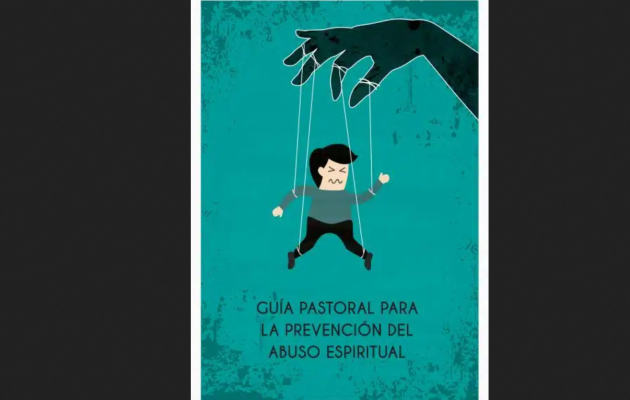The response to abuse in the context of evangelical churches “must be empathetic, firm, focused on the restoration of the damaged, not the prestige of a church institution”, says Marcos Zapata, president of the Spanish Evangelical Alliance.
![Photo: [link]M. Kondratov[/link], Unsplash, CC0.](https://cms.evangelicalfocus.com/upload/imagenes/67f8ed25baf97_67f7a880cb973_mykyta-kondratov-31nJUFzBHSE-unsplash.jpg) Photo: [link]M. Kondratov[/link], Unsplash, CC0.
Photo: [link]M. Kondratov[/link], Unsplash, CC0.
In recent weeks, various media outlets in Spain have reported about the case of alleged abuses committed at the now dissolved Samaria church in the city of Terrassa (near Barcelona).
At least three victims have filed complaints against the church leaders, initiating a judicial process in which the Evangelical Council of Catalonia and the Spanish Evangelical Federation (Ferede) have joined the private prosecution.
This case once again raises questions about how evangelical churches deal with situations of abuse in their environment. To approach this issue, Spanish news website Protestante Digital spoke to Marcos Zapata, pastor of the Buenas Noticias church in Lugo and president of the Spanish Evangelical Alliance, which in 2016 published a pastoral guide to prevent spiritual abuse.

[photo_footer] Evangelical churches need to do the difficult work to face abuses, says Spanish Evangelical Alliance president Marcos Zapata. / Photo: Mic Narra, Unsplash, CC0. [/photo_footer] Question. From time to time we hear news that freeze our heart, reports about abuse committed in the context of evangelical churches. First of all, what position should we, as evangelicals, take in these situations?
Answer. As evangelicals, we must take a clear position of zero tolerance for abuse in any form. This includes publicly denouncing the sin, cooperating with civil authorities, protecting and accompanying the victims, and reviewing our structures to prevent any form of cover-up.
Justice and truth are at the heart of the Gospel, and we cannot protect institutions at the cost of people’s suffering. Our response must be empathetic, firm, responsible and focused on the restoration of the damaged, not the prestige of a church institution.
[destacate]“We must train leaders in ethics, boundaries and healthy accompaniment”[/destacate]Q. In cases like that of the Samaria Church, from what the victims say, there was an atmosphere of authoritarianism and isolation. How can we avoid these situations in our churches?
A. In my opinion, it is essential to cultivate environments of accountability, transparency and healthy participation. Some measures that we could promote in our churches or church organisations could be:
A healthy church is one where no one has absolute power and everyone is subject to the Word and the Holy Spirit, but also to a mature community.

[photo_footer] The pastoral guide against spiritual abuse published in 2016 by the Spanish Evangelical Alliance. [/photo_footer]
A. The most important thing is for them to know that they are not alone. There are some steps they can take to deal with the situation of abuse:
The person should receive emotional, spiritual and legal support, and the church should facilitate this process, not hinder it.
Q. In a situation of abuse, what tools can be applied for a process of restoration?
A. First, it is important to understand that restoration does not mean returning to normality as if nothing had happened. The process must focus, above all, on the victims. Some tools I can suggest are:
We could add more points, but if these are put into practice, we will undoubtedly be dealing with a church that is responsible to its community.
[destacate]“If a leader has committed abuse, especially of power, sexual or emotional abuse, the restoration of their ministry should not be automatic or necessarily possible”[/destacate]Q. If a leader has committed abuse, is restoration possible in terms of their ministry?
A. Without doubt, this is a question that would require a more complete answer than I can give in this interview. First, I want to establish that there is spiritual restoration for everyone, because no one is beyond the reach of God’s grace. But a return to Christian ministry is another matter.
Leadership is a public responsibility that requires trust, integrity and maturity.
If a leader has committed abuse, especially of power, sexual or emotional abuse, the restoration of their ministry should not be automatic or necessarily possible. In the vast majority of cases, it is better if they do not return to a role of spiritual authority, although they can be restored as a child of God and a member of the community.
The church needs to give ministry back the weight and responsibility it has, and protect the sheep over the prestige of their pastors.
[analysis]
[title]Join us to make EF sustainable[/title]
[photo][/photo]
[text]At Evangelical Focus, we have a sustainability challenge ahead. We invite you to join those across Europe and beyond who are committed with our mission. Together, we will ensure the continuity of Evangelical Focus and our Spanish partner Protestante Digital in 2025.
Learn all about our #TogetherInThisMission initiative here (English).
[/text][/analysis]

Las opiniones vertidas por nuestros colaboradores se realizan a nivel personal, pudiendo coincidir o no con la postura de la dirección de Protestante Digital.
Si quieres comentar o